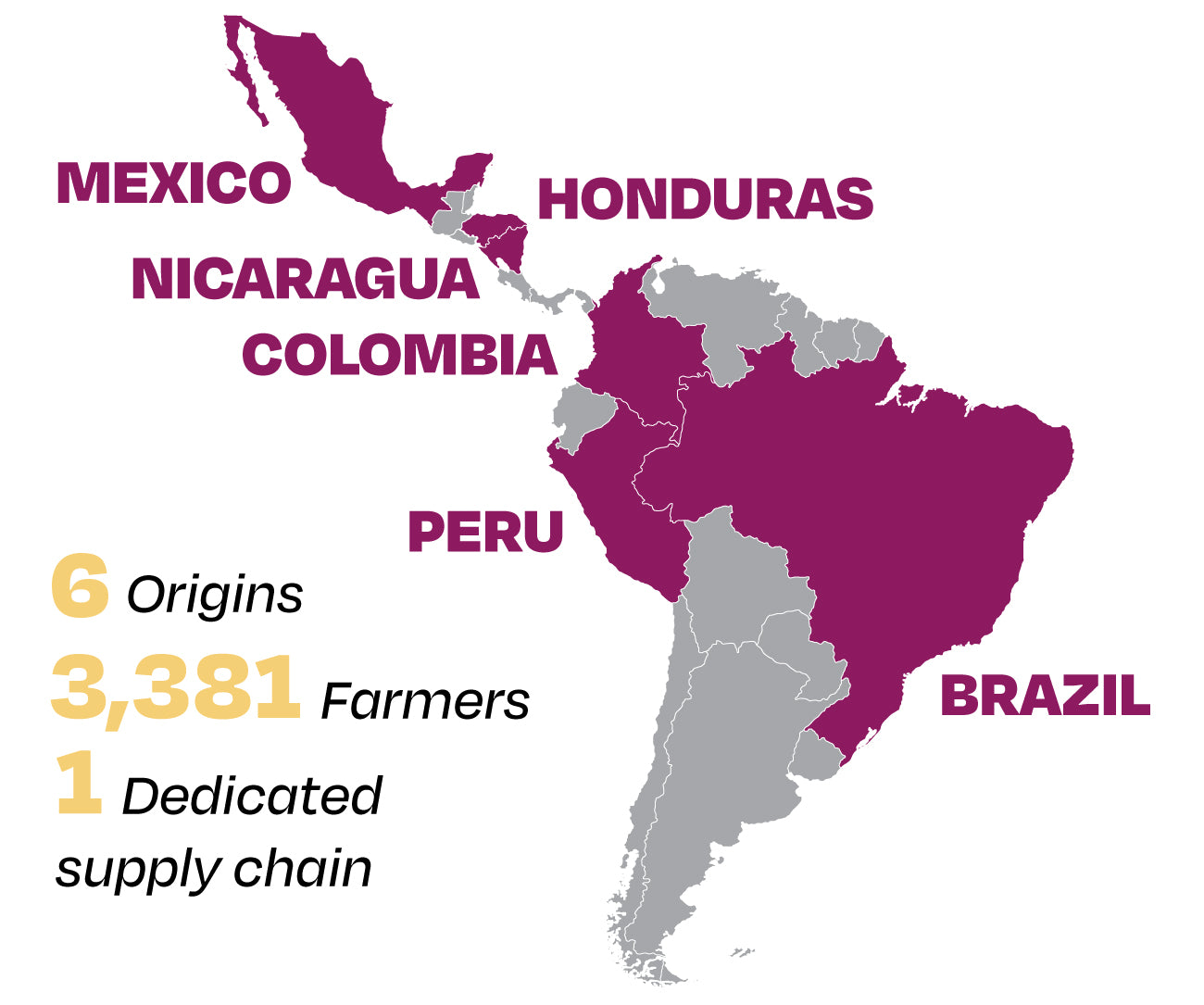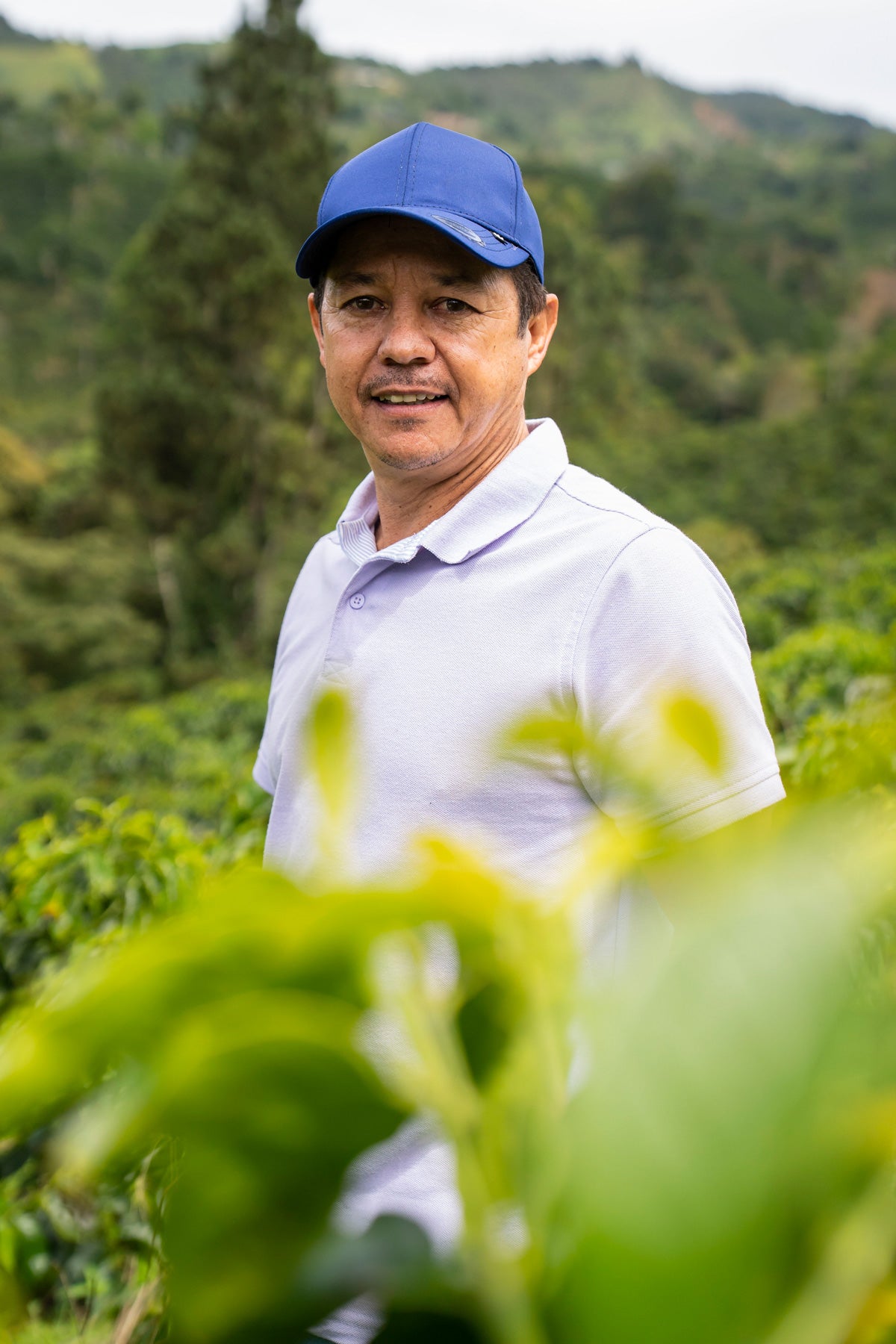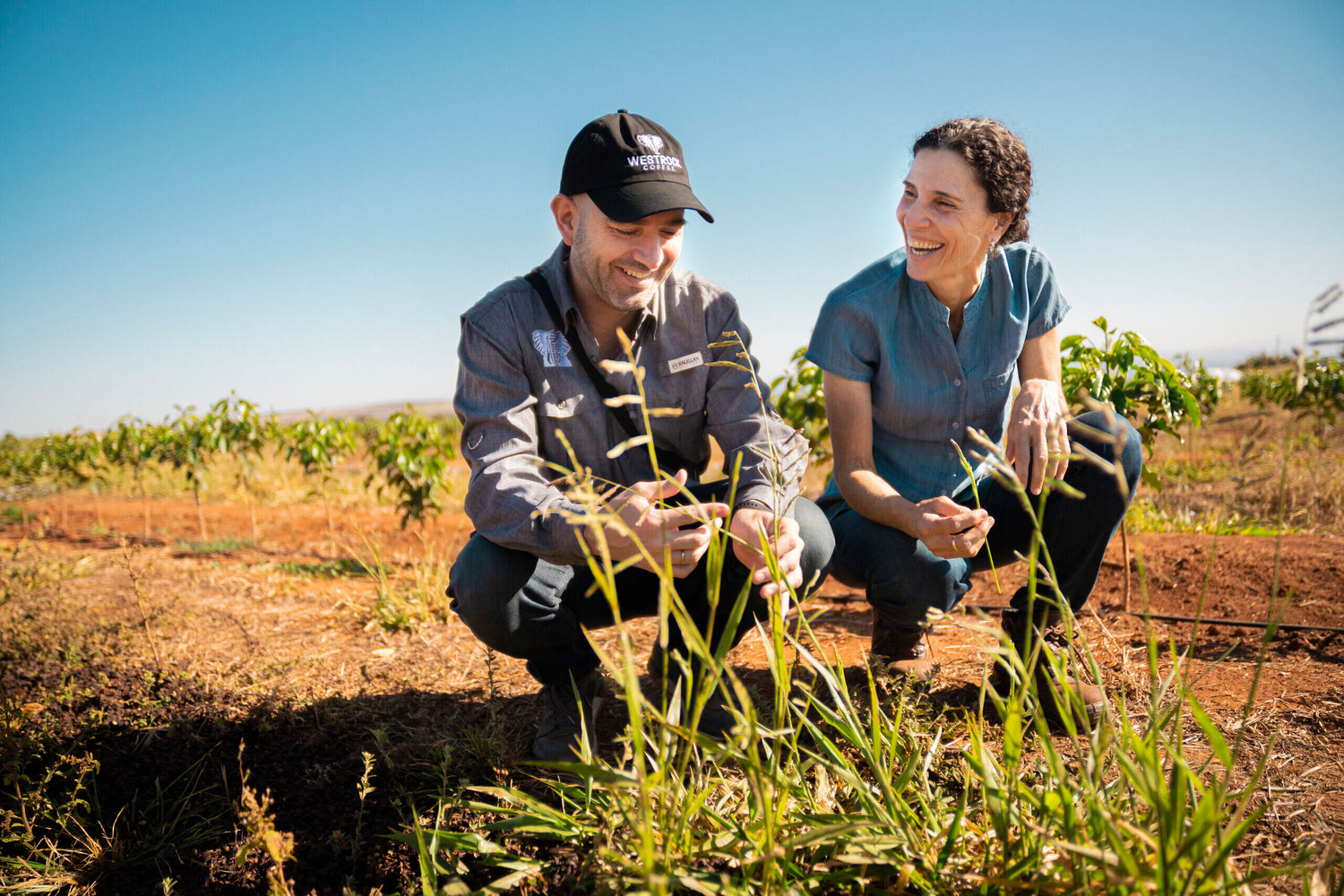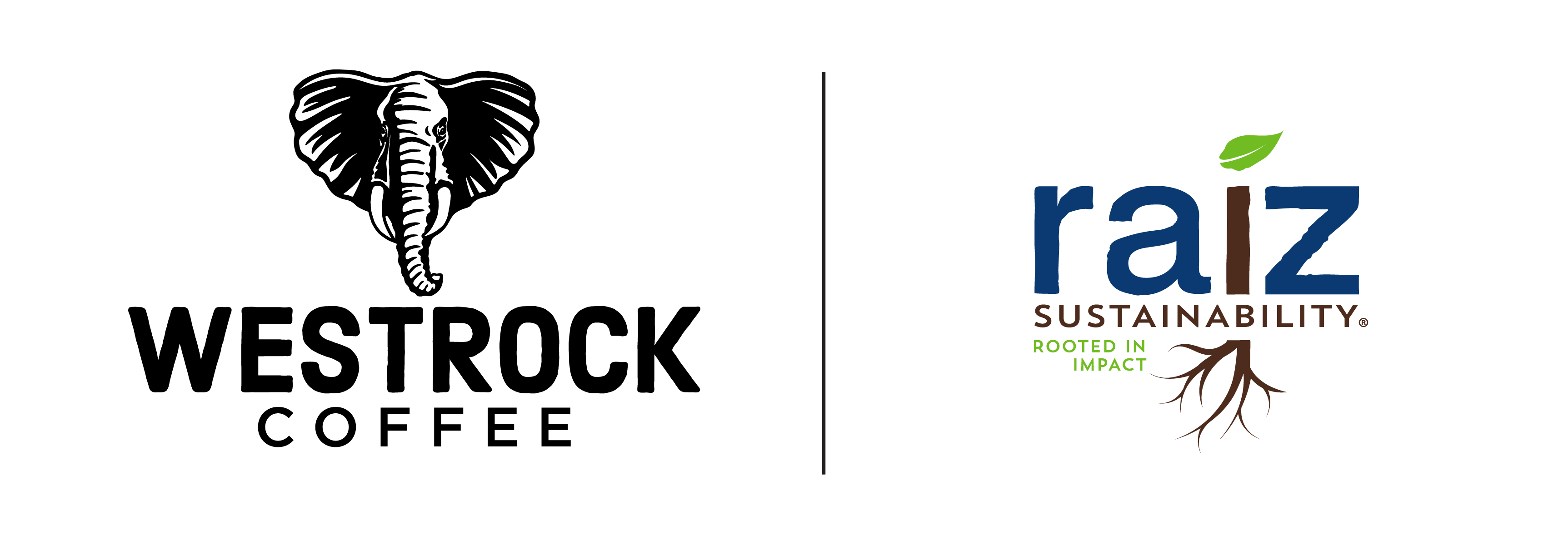Raíz Sustainability® (Raíz) is an inclusive sustainability solution for Westrock Coffee’s farmer partners and our customers.

WHY RAÍZ EXISTS
Raíz Sustainability®was created by Westrock Coffee to root farm economic profitability, environmentally beneficial agriculture, socially responsible working conditions, and equitable supply chains into the fabric of the partnerships that carry coffee from the tree it grows on to the consumer who enjoys it. Ethical, resilient supply is just the starting point; Raíz provides farmers financial security while working on real, long-term agribusiness viability from farm to finished product.
HOW RAÍZ WORKS
Raíz is a collaborative platform in which every stakeholder plays a valuable role in bringing sustainable and affordable coffee to consumers.


RAÍZ’S IMPACT
Raíz started in 2015. Many farmers who registered in the program were not part of a certification program and were not applying consistent, sustainable farming practices. This consistency has led to long-term impactful relationships, 77% of Raíz’s active farmers joined in 2016 or earlier, and all farmers apply sustainable agriculture techniques across their entire farms. Many of their farms have multiple third-party certifications, and Raíz farmers are seen as sustainable business leaders in their communities.
“By being part of Raiz Sustainability® I have been able to access new tools, new techniques, and all the necessary support to solve problems in my coffee farm. Raiz has created a community of coffee producers pushing to be more sustainable, improving the way we produce coffee and encouraging changes that used to be a paradigm before”.
- Francsico Calle, Raíz Farmer Partner
“By being part of Raiz Sustainability® I have been able to access new tools, new techniques, and all the necessary support to solve problems in my coffee farm. Raiz has created a community of coffee producers pushing to be more sustainable, improving the way we produce coffee and encouraging changes that used to be a paradigm before”.
- Francsico Calle, Raíz Farmer Partner
HOW RAÍZ COFFEE IS VERIFIED
-
A farmers journey in Raíz Sustainability® begins with their commitment to uphold the Raíz standard, which establishes mandatory requirements for farmers and Westrock Coffee’s supply partners in four key areas: social, environmental, economic, and traceability. For example, conversion of forests to agricultural production is not tolerated.
The standard also establishes continuous improvement opportunities that farms should add over time, such as implementing a plan to minimize impact of climate change on coffee production. Every year, a sample of farms is audited by an accredited 3rd party auditing agency to ensure farms are 100% compliant with mandatory requirements and to measure their progress in continuous improvement areas.



